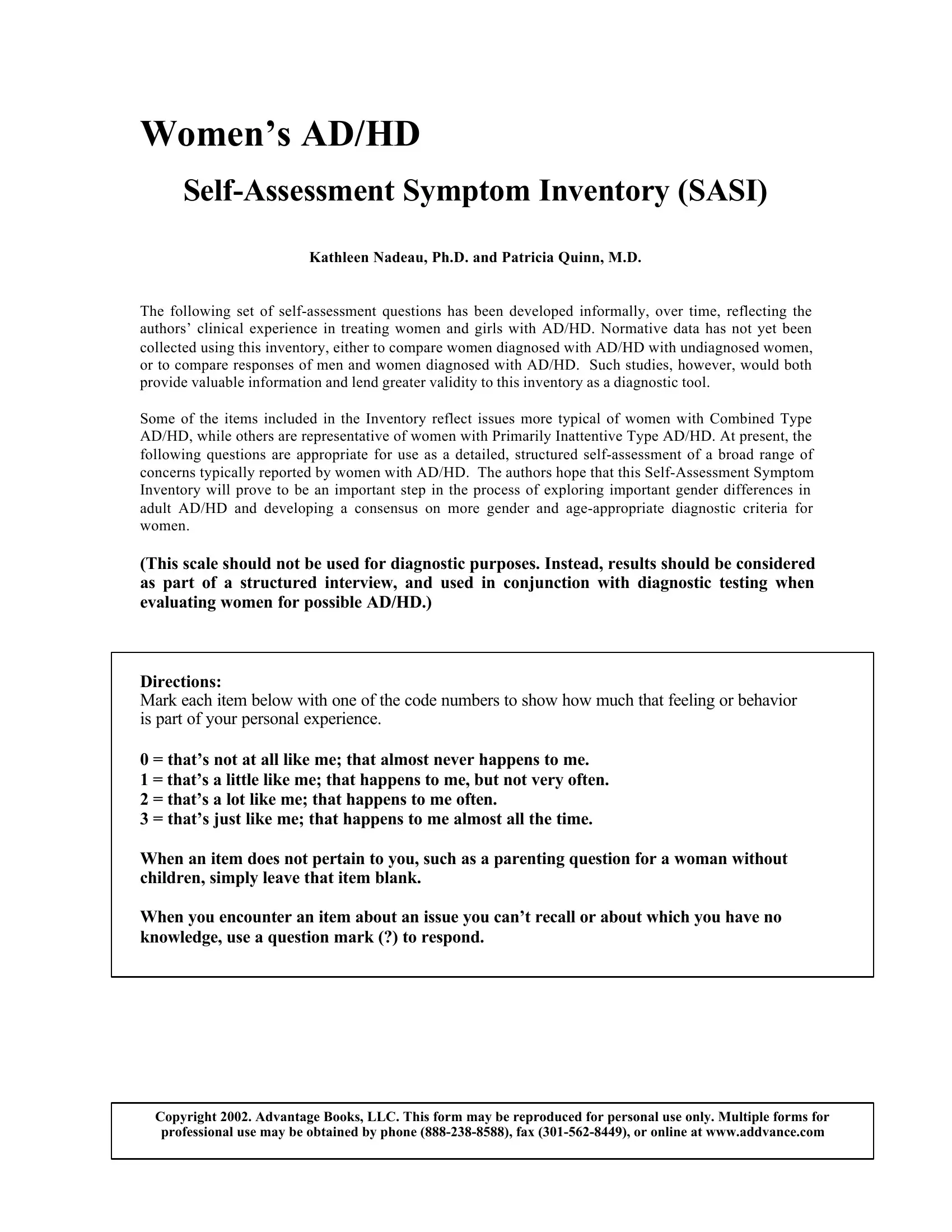sasi adhd can be completed online without any problem. Simply make use of FormsPal PDF editor to accomplish the job in a timely fashion. In order to make our tool better and more convenient to work with, we consistently come up with new features, with our users' suggestions in mind. If you are seeking to get started, here is what it takes:
Step 1: Press the orange "Get Form" button above. It'll open up our pdf editor so you can begin completing your form.
Step 2: Once you launch the editor, you'll notice the form prepared to be completed. Other than filling in different blank fields, you may as well perform various other things with the Document, particularly adding custom text, editing the original text, inserting graphics, signing the PDF, and a lot more.
Filling out this document requires care for details. Make sure all necessary fields are filled in correctly.
1. For starters, when completing the sasi adhd, start out with the form section that contains the next blanks:
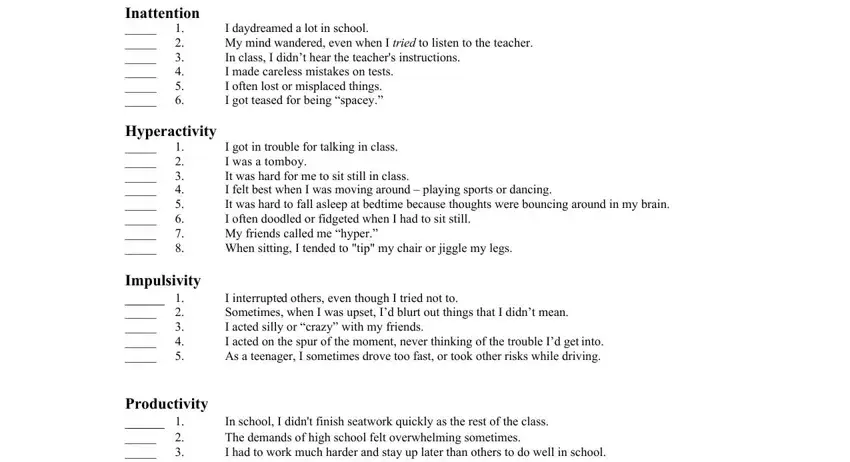
2. Right after performing the previous step, go to the next stage and fill out all required details in these blank fields - Problems with initiation, I had trouble getting started on, Problems with, It was hard for me to complete, Problems with underarousal, I felt sleepy when sitting in, Procrastination problems, I was smart but got by doing, and Copyright Advantage Books LLC.
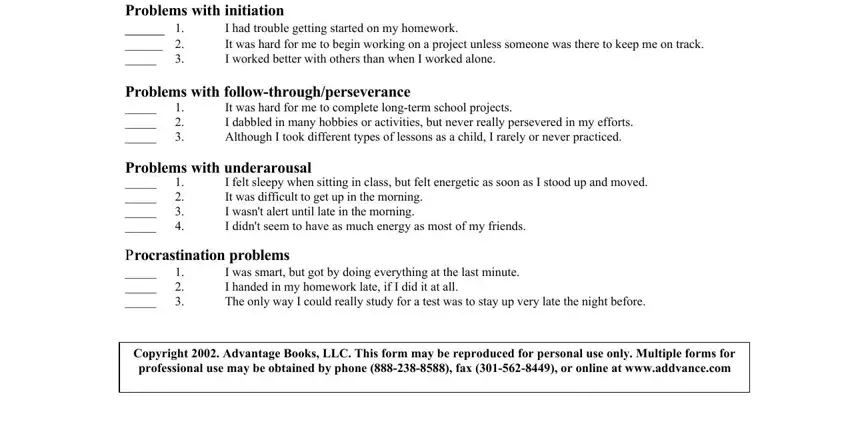
People who use this document often get some points incorrect when completing It was hard for me to complete in this section. You should definitely read again everything you type in right here.
3. The next step is usually easy - complete all of the form fields in Low motivationunderachievement, I didnt do as well in school as I, Organizational difficulties, My room looked like a disaster, Poor time management, I arrived late for scheduled, Problems with finegross motor, My handwriting was messy I was, LEARNING ISSUES, Reading problems, and I was a slow reader When reading to complete this process.
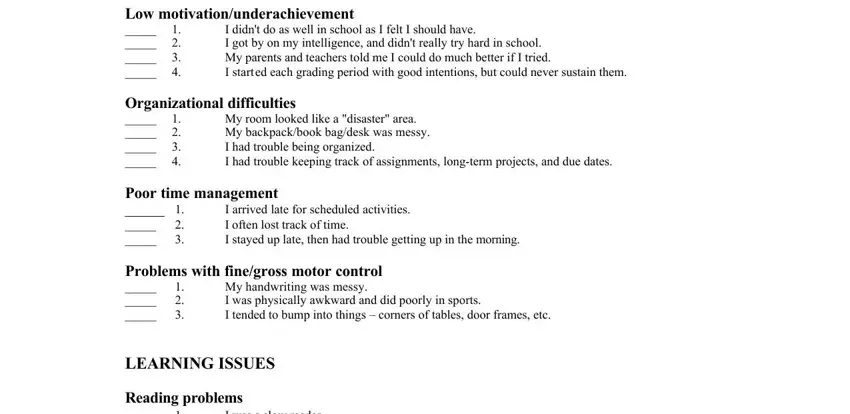
4. The next section needs your information in the following parts: Reading problems, I was a slow reader When reading, Writing problems, Writing assignments were difficult, Memory problems, I had trouble remembering the, SOCIALINTERPERSONAL ISSUES, Shyness social withdrawal, I felt shy and selfconscious, Interpersonalverbal problems, and Other girls called me mean or. Always fill in all requested info to go onward.
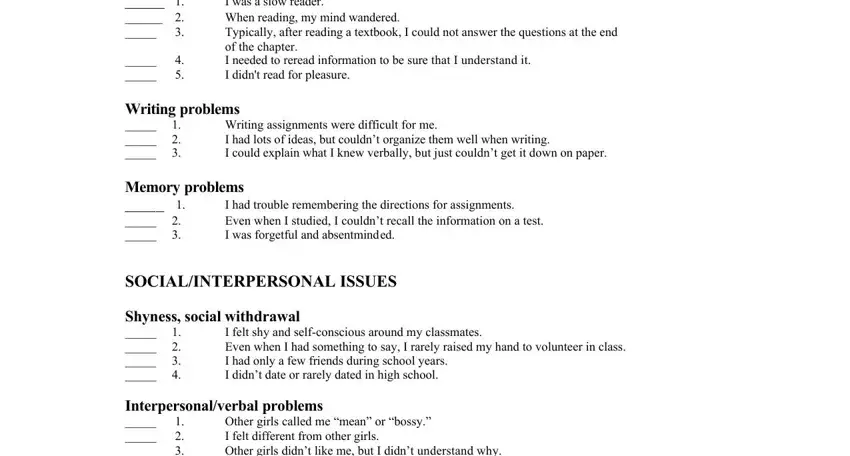
5. As you come near to the final sections of the document, you'll notice a few more things to complete. In particular, Interpersonalverbal problems, Other girls called me mean or, and Copyright Advantage Books LLC must be filled in.

Step 3: You should make sure your details are accurate and just click "Done" to progress further. Get the sasi adhd when you register at FormsPal for a 7-day free trial. Immediately use the document within your personal account, together with any modifications and adjustments conveniently kept! We don't sell or share any details you provide whenever working with forms at our website.
